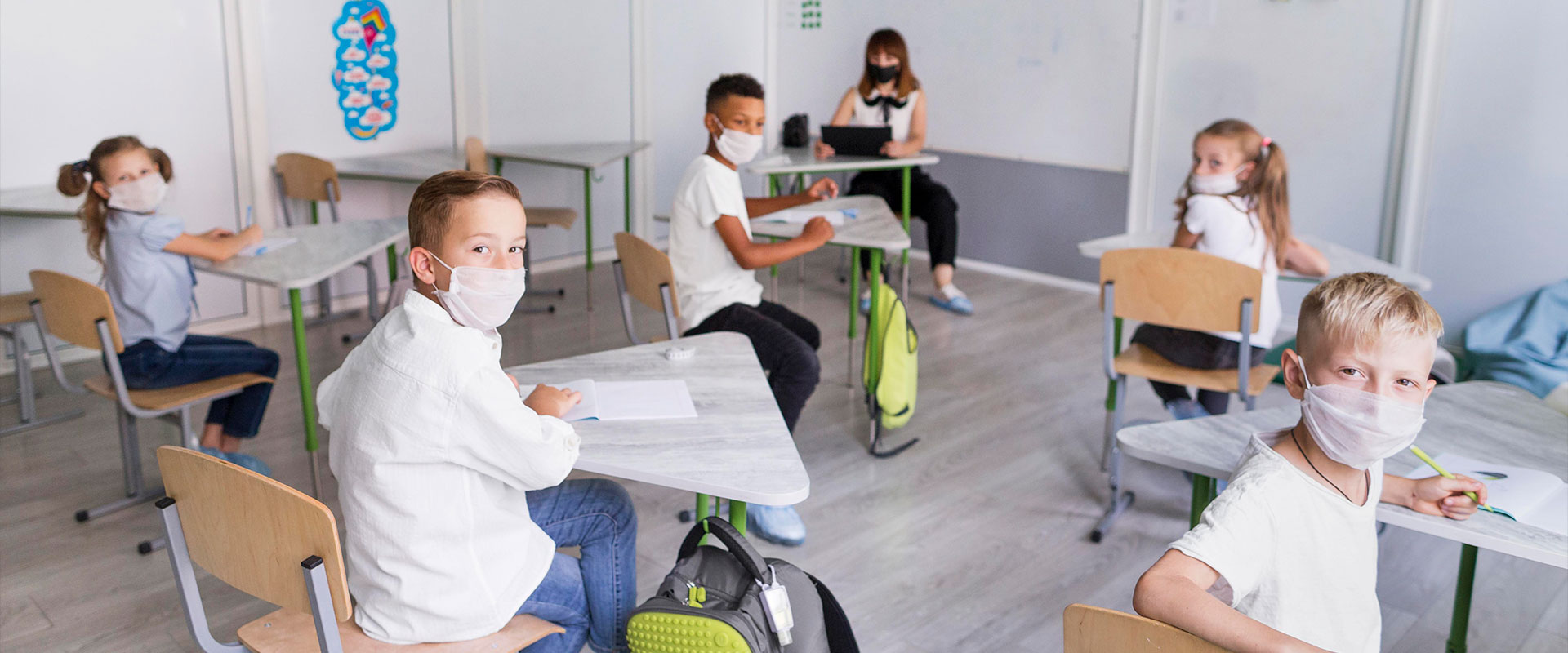
Covid-19 Cleaning & Precautions for Schools
The COVID-19 pandemic has challenged all aspects of life, from business to home, for everyone in the world. While life is slowly turning back to normal, many precautions are still needed to prevent the further spread of the virus as various sectors around the country resume operations.
One aspect of our daily life that still needs to be appropriately addressed is education. Online learning does not provide students with quality and engaging material like schools can do for students to learn effectively. As such, schools need to enforce safety measures to prevent the further spread of the virus while reopening their doors.
These safety measures come with their own set of challenges as disinfectant sprays, wipes, and bleach have been known to cause and exacerbate asthma, and other respiratory issues. Preventing the spread of COVID-19, therefore, requires careful planning.
Here are some of the health protocols that schools should implement for the safety of staff and students:
1. Maintain proper physical distancing in school premises
Ideally physical distancing of at least 1 metre should be enforced between all staff and students on the school premises. Students should be discouraged to gather and socialise in groups bigger than 10. Increasing the desk spacing and maintaining crowds in the hallways is also crucial to reducing the chance of infection.
Canteens are another vulnerable area in schools – if possible, schools should encourage eating lunch in the classroom itself, or on open school grounds. Another vulnerable school area are bathrooms – schools should try to regulate bathroom usage as much as possible, and maintain a regular cleaning schedule.
2. Create an effective cleaning and disinfecting plan
Janitorial staff at schools should develop a regular cleaning and disinfecting plan and follow it strictly. This should include cleaning and disinfecting of surfaces regularly (at least once an hour if possible), especially surfaces which are used the most, such as doorknobs, desks, and table surfaces.
Classrooms should be cleaned and disinfected daily, and proper COVID-19 guidelines should be followed for cleaning the rooms. Cleaning materials should also be stored appropriately to avoid any kind of health issues, especially if chemical disinfectants are being used.
3. Strict practice of health protocols
School management should establish an infection control plan and implement those steps by developing, maintaining, and revising them regularly. This includes what to do when possible infections are discovered, and how to manage the students and classes accordingly. Students should also be instructed to follow the health protocols strictly.
Teachers and other staff should be equipped and trained on the use of temperature guns to check temperatures of students. If possible, more effective ways of temperature screening can also be introduced.
4. Maintain hand hygiene
Hand wash, sanitizers, and disinfectants are known to be effective against the spreading of COVID-19. As such, it is essential that sanitizers are placed generously at key areas around the school premises in order to maintain hand hygiene in the school.
Since washing hands is more effective, teachers should also encourage students to wash their hands after touching any surface, and during breaks, as well as after entering school premises, and just before leaving.
5. Use of masks and face shields
Masks when combined with other preventive measures, are very effective against the transmission of the virus. Surgical masks, N95 masks, and multi-layered cloth masks are known to help slow down the spreading, however out of the three, N95 should be recommended for maximum protection.
Both staff and students should be instructed to wear N95 masks at all times; the school should also keep a comfortable stock of spare masks for anyone who is not able to get them on their own. Anyone managing food or other sensitive materials should also be provided with face shields to minimise infection.
6. Coordinate with parents to ensure the safety of their children
One effective way of managing and reducing the risk of COVID-19 infections at the school is to ensure that parents fully cooperate with the school. This includes ensuring that children are equipped with proper masks and face shields if possible, are aware of the risks, and comply with the new safety measures in place.
Furthermore, parents are more likely to notice if their child is infected, and should notify the school immediately if so, so that the school can take the necessary actions such as informing other parents about the situation, and hiring specialised cleaning crews accordingly.
7. Consult with COVID-19 Cleaning Specialists
While existing janitorial staff at schools may be trained and equipped to deal with most kinds of situations, it is less likely that they are able to handle possible COVID-19 infections. Whether it is a confirmed case, suspected case, or just a specialised cleaning that is required, it is always safer to hire specialised cleaners who are experienced and better equipped.
Reliable & Professional COVID-19 Specialists are just a call away
innovatefm is one of the most experienced and capable cleaning professionals in the UK.
Not only have our teams completed COVID-19 cleans in multiple locations, we have also carried out sanitisation for the Norovirus outbreak in Manchester schools previously. Our specialised teams use cold fogging equipment and approved chemicals to ensure that your school is safe, and students stay healthy.
For more information, please call us on (0161) 724 8999 or email us at enquiries@innovatefm.co.uk

